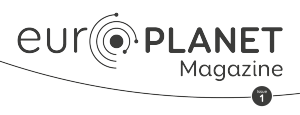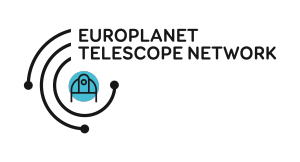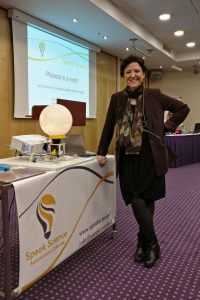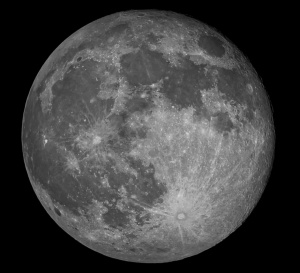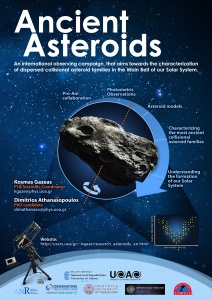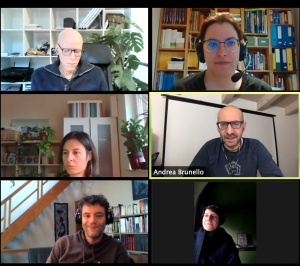
Despite the challenges of the pandemic, there is a lot of activity within the Europlanet 2024 Research Infrastructure (RI), the Europlanet Society and the wider planetary science community. Here, we report on some of the news and opportunities.
(Transnational) Access All Areas
Read article in the fully formatted PDF of the Europlanet Magazine.
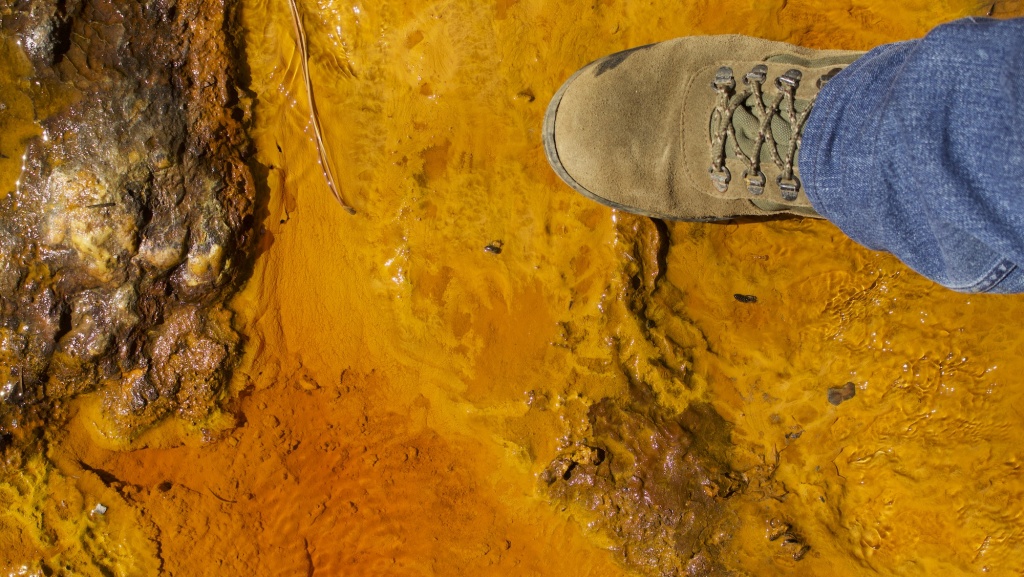
A major activity of the Europlanet 2024 Research Infrastructure (RI) is to offer researchers free Transnational Access (TA) through fully-funded visits to research facilities in Europe and around the world. The facilities include a suite of seven field sites that provide analogues for studying environments found on other planets and over 40 laboratories for the simulation or characterisation of planetary conditions and materials, including 11 facilities in South Korea. Despite the pandemic, 171 research teams have applied to visit the sites over two calls for applications since the start of the Europlanet 2024 RI project in February 2020. To date, 117 projects have been approved for funding.
Successful projects funded in Call 2, which were announced in April 2021, include the first funded visits by members of the European community to laboratory facilities in South Korea and vice versa. Further facilities in South Korea, China and Argentina (see feature article) will be included in the next calls for applications. Six TA facilities are being upgraded with funding from the Europlanet 2024 RI. An ion beam facility for irradiating planetary ice analogues has been installed at the Atomki Ice Chamber for Astrophysics/ Astrochemistry (ICA) in Debrecen, and was included in the first TA call in May 2020. The upgrades at ICA will support research to improve our understanding of the physical and chemical processes in the Solar System. A second chamber was shipped from Queen’s University of Belfast to Debrecen in December 2020, to provide a complementary facility to the ICA, and should be operational for inclusion in TA Call 3.
To date, three TA visits have taken place, including a virtual and an in-person visit to the ICA facility in Hungary and a virtual visit to Cold Surfaces Spectroscopy laboratory at IPAG in France. Due to the Covid-19 pandemic, implementation time for successful applicants to conduct a TA visit has been extended from 12 to 20 months.

First Successful Observations with the Europlanet Telescope Network
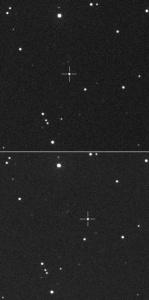
Last June saw the launch of a new network of small telescope facilities to support planetary science observations by professional and amateur astronomers. The Europlanet Telescope Network currently comprises 16 observatories with telescopes ranging from 40 cm to 2 m in size. The network can be accessed to carry out projects on a wide variety of scientific studies about the Solar System and exoplanets, as well as related astronomical investigations.
The first round of successful proposals was announced in December 2020 and Polish astronomer, Anna Marciniak, performed the Europlanet Telescope Network’s first observations in January 2021, remotely accessing facilities at Vilnius University’s Moletai Observatory in Lithuania. Dr Marciniak’s project aims to improve the determination of spin, shape, size, and thermal parameters for a number of interesting asteroids that have been overlooked by most previous studies. Complemented with data from other sites, the successful observations will result in complete light curves (graphs of changes in the amount of light reflected as an asteroid spins) for five asteroids with rotation periods up to 38 hours.
Further projects funded through the Europlanet Telescope Network include observations of variable nebulae led by the UK amateur astronomer, Grant Privett. Initial results obtained at the University of Kent’s Beacon Observatory are promising. Further proposals can be submitted at any time through the network’s call for observations.
EPSC2021 Virtual Congress
Read article in the fully formatted PDF of the Europlanet Magazine.
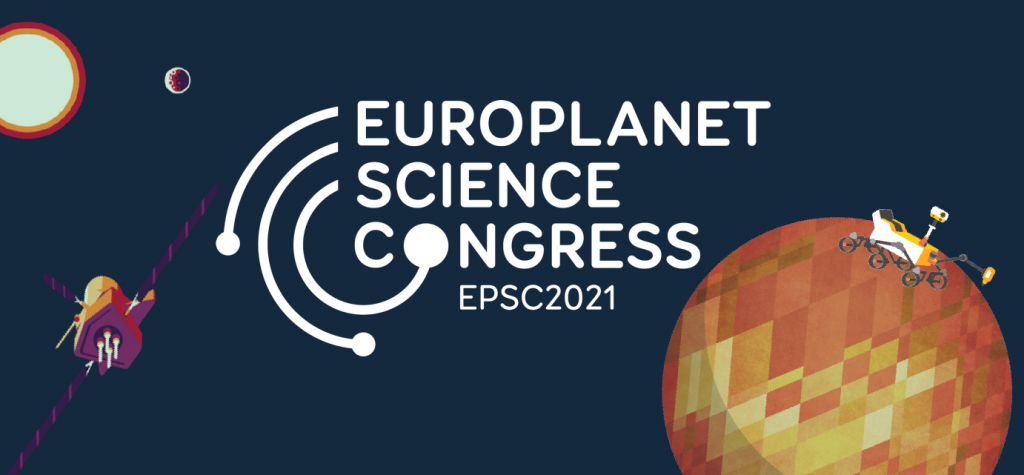
The Europlanet Science Congress (EPSC2021) will be held as a virtual meeting from 13-24 September 2021. EPSC2021 will be the second time that EPSC has been held as a virtual meeting, and is building on the success and the lessons learned from the first virtual edition in 2020. EPSC2021 will have a hybrid format of live sessions and asynchronous scientific presentations. The ethos for EPSC2021 is to create a simple, flexible and inclusive virtual meeting that provides multiple opportunities for interaction, scientific discussion and networking. www.epsc2021.eu
Fireballs Workshop Series Planned
Read article in the fully formatted PDF of the Europlanet Magazine.
As well as illuminating our skies, meteors have been highlighted in recent news headlines (see the feature article on page 34). Fireball-tracking networks around the world are assisting in the recovery of fragments of fresh meteorites and understanding where in the Solar System they originated. Over the next two years, Europlanet 2024 Research Infrastructure (RI) will bring together observers from different
fireball networks, along with machine learning experts, to advise on handling the data collected.The first in a series of four workshops will take place virtually on 11-12 June 2021, with follow-up sessions in the autumn 2021 and during 2022.Participants will discuss the technical capabilities of the different fireball networks and explore possibilities for developing a common data format and a portal for all data, supported by the Europlanet Virtual Observatory for planetary science (VESPA).
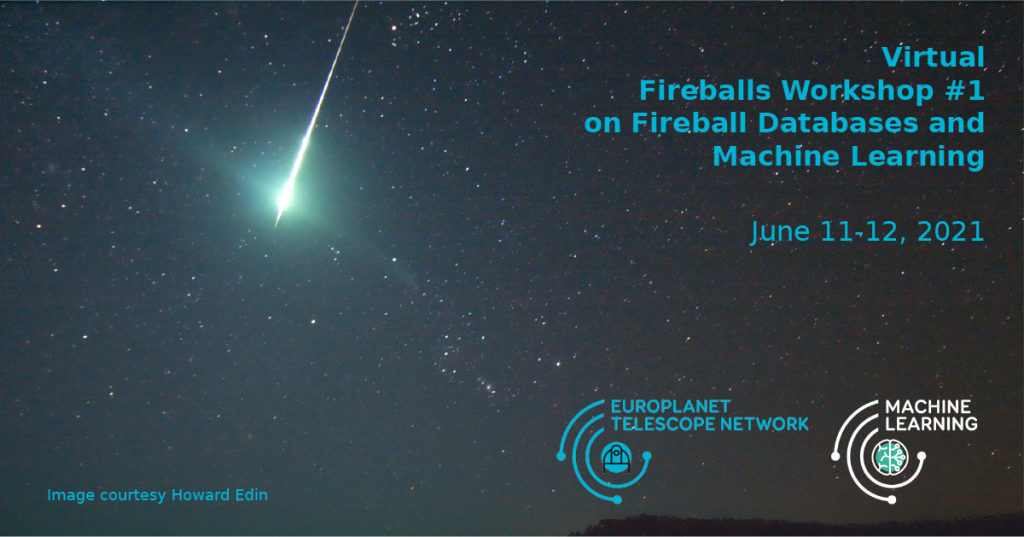

BepiColombo Revisits Venus
Read article in the fully formatted PDF of the Europlanet Magazine.
The European-Japanese (ESA-JAXA) mission, BepiColombo, will arrive at Mercury in December 2025 after a roundabout interplanetary journey. It swung past Earth and Venus in 2020 and will perform a second flyby of Venus on 10 August 2021. The flybys are a unique opportunity to study Venus from multiple perspectives, with coordinated observations from BepiColombo, the Japanese Akatsuki mission and ground-based telescopes. Professional and amateur astronomers are encouraged to join the campaign, and to apply for time on the Europlanet Telescope Network.
Ariel Data Challenge 2021
Read article in the fully formatted PDF of the Europlanet Magazine.
‘Machine vs Stellar and Instrument Noise’ is a machine learning data challenge in support of the European Space Agency’s Ariel mission, which will study the atmospheres of 1000 extrasolar planets. Building on the success of the first Ariel data challenge in 2019, which had over 100 teams participating, the 2021 contest asks participants to identify and remove noise in observations of exoplanets transiting in front of their host star caused by star spots. The closing date is 1 July 2021. ariel-datachallenge.space
SSHADE Evolutions
Read article in the fully formatted PDF of the Europlanet Magazine.
SSHADE is a library of spectral databases for many different types of solid materials over a wide range of wavelengths, which can support astronomers and astrophysicists in interpreting observations from telescopes or space missions.
Over the last year, the content of the databases of the SSHADE solid spectroscopy infrastructure has evolved significantly, with now more than 3600 publicly available spectra on ices, minerals, rocks, organic matters and cosmomaterials. The spectra are synthesised in laboratories, collected or measured at planetary field analogue sites, or derived from extraterrestrial samples collected on Earth (meteorites) or from sample return missions.About 140 new spectra are added to SSHADE every month, including over 700 spectra recorded with different techniques for more than 200 different meteorites. Two new partners have already started databases in SSHADE through Europlanet 2024 Research Infrastructure (RI) and more will join before the end of the year.
Major improvements in the user interface, in particular in the dynamic plotting tool, have also been implemented. http://www.sshade.eu/

Europlanet Summer School Goes Virtual
Read article in the fully formatted PDF of the Europlanet Magazine.
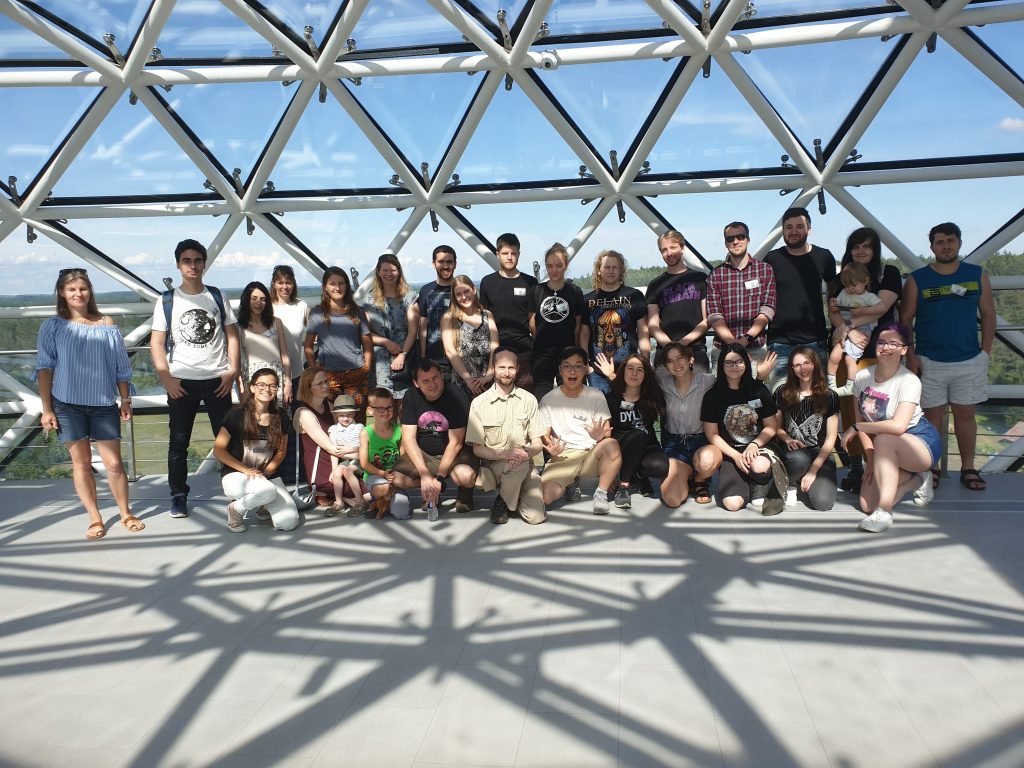
Summer schools have a long track record as an effective support for early career professionals and amateur astronomers within the planetary science community.
Due to Covid-19, Europlanet summer schools in 2020 were postponed and it is still not clear when face-to-face activities will resume. Nonetheless, virtual conferences such as the Europlanet Science Congress (EPSC2020) and the Planetary Mapping Winter School have shown that summer schools can work successfully in a virtual environment and, through this format, can also widen participation by giving students the opportunity to join from anywhere in the world.
The first virtual summer school organised by Europlanet 2024 Research Infrastructure (RI) will take place from 16 – 27 August 2021 and will be dedicated to observations of asteroids. The hands-on programme will be led by the astronomers Anna Marciniak (A. Mickiewicz University, Poland) and Grazina Tautvaisiene (Vilnius University, Lithuania). Participants will be given practical experience of making photometric observations of asteroids, using the facilities at the Vilnius University Molėtai Astronomical Observatory in Lithuania remotely, and analysing the resulting data.
Sessions will be accompanied by lectures from leading astronomers and the participants will also be trained in writing and submitting observing proposals to facilities participating in the Europlanet Telescope Network.
The deadline for applications is 15 June 2021. mao.tfai.vu.lt/europlanet2021

Mentoring Matters
Read article in the fully formatted PDF of the Europlanet Magazine.
The last year has been challenging for everyone, but young people have been hit particularly hard by the pandemic. Therefore, providing support for our early career comm-unity has never been more important.
In August 2020 Europlanet launched a mentorship programme to support early career professionals working in planetary science and related fields. The programme aims to help early career scientists to develop expertise, ask questions and discuss career plans with more established members of the planetary community. The programme is voluntary, informal and confidential, with mentors and mentees engaging with each other in a manner that is flexible and suited to their individual working environments.
A pilot programme started by matching ten pairs of mentors and mentees at different stages of their careers in planetary science. The Europlanet Mentorship programme already covers a wide geographical spread, with participants from 12 countries ranging from Sweden to Georgia. So far, feedback has been very positive. One mentee reported: ‘For the past three months I’ve had several meetings with my mentor as part of the mentorship program. We have discussed my career goals at length, and looked into current opportunities adequate to my personal plans. These meetings gave me an opportunity to have an open conversation about topics that I dread to have with my supervisor. I strongly advise any students or post-docs to try it.’
Mentoring provides development opportunities for mentors as well as personal satisfaction. Mentees can benefit from the insights and advice of more experienced scientists, as well as clarify their personal and professional goals. The Europlanet Mentorship platform is part of the Early Careers Training and Education Portal, which provides information on PhD positions, job opportunities, summer schools and meetings relevant to early career professionals working in planetary science and related fields.
Everyone interested in participating in the Europlanet Mentorship is invited to sign up now and become a mentor or a mentee: https://www.europlanet-society.org/mentoring.
The Europlanet Mentorship programme is coordinated by Edita Stonkutė, Gražina Tautvaišienė and Šarūnas Mikolaitis of the Institute of Theoretical Physics and Astronomy, Vilnius University, Lithuania.
Evaluation Made Easier
Read article in the fully formatted PDF of the Europlanet Magazine.
Impact evaluation is becoming a standard requirement in many projects, but knowing how to approach this in a meaningful way – within the practicalities of time and budget constraints – can be daunting.
Since 2017, Europlanet has been developing an Evaluation Toolkit to provide easy-to-use data collection and analysis techniques for assessing the outcomes of activities. Although primarily designed for outreach providers, most of the tools can be applied to any kind of workshop or event. The toolkit guides users through the basics of evaluation and the selection processes for identifying the right tool for the right activity. Resources include worked examples, case studies and video tutorials.
The Europlanet Evaluation Toolkit can be ordered in hard-copy form (as a book and pack of activity cards), or accessed through an interactive set of pages on the Europlanet Society website. bit.ly/EuroplanetEvaluationToolkit

Planets in a Room
Read article in the fully formatted PDF of the Europlanet Magazine.
Teaching planetary science using a spherical projector to show the planets’ surfaces is a very effective but usually very expensive idea.
‘Planets in a Room’ is a low-cost version of a small, spherical projector that teachers, planetary scientists, museums and other individuals can easily build themselves and use to show and teach the planets. Initially funded by the Europlanet Outreach Funding Scheme, and developed by the Italian non-profit association Speak Science in collaboration with INAF-IAPS of Rome and the Roma Tre University, Planets in a Room is now being distributed through a dedicated website to the outreach community. New educational projects and contents are under development. https://www.planetsinaroom.net
Superluna!
Read article in the fully formatted PDF of the Europlanet Magazine.
Spring 2021 has been a season of ‘supermoons’, with the Full Moon in April and May occurring within 10% of the closest point in the lunar orbit to Earth. These luminous supermoons, which are about 7% bigger and about 15% brighter than a typical Full Moon are opportunities to engage the public.
The supermoon on 26th May was the closest Full Moon of the year. Over 25,000 viewers joined a live event, ‘Superluna!’, on the social media channels of facilities from the Italian National Institute for Astrophysics (INAF). Members of the public were invited to contribute their views of the Moon across European skies in a Superluna! contest.
The winning entry by Roberto Vaccaro and all submissions, as well as resources on observing the Moon, are available on the Europlanet Society website.
Mars in the Classroom
Read article in the fully formatted PDF of the Europlanet Magazine.
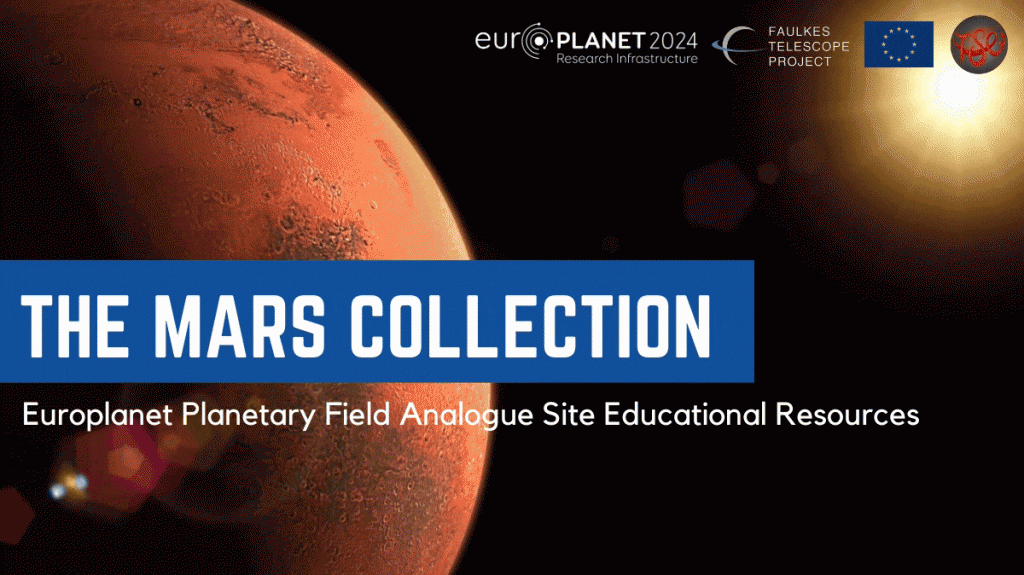
The Mars Collection is a set of school resources exploring the possibilities of life on the Red Planet. The resources have been produced to be easily translatable, and link areas of the curriculum with research on Mars and places on Earth with martian characteristics (analogue field sites).
The project brings an astrobiological perspective to a range of topics, from geoscience and volcanoes, to pH and mineral deposition. Each resource pack includes downloadable presentations, teachers notes and videos of experiments. In Terra chiama Marte (Earth calling Mars), EduINAF has adapted the resources for Italian schools, giving a complete overview of the main chemical and physical features of the Red Planet through five video lessons, lasting ten minutes each, aimed at 10-14 year olds.

Planetary Science Wiki-Edit-A-Thon
Read article in the fully formatted PDF of the Europlanet Magazine.
With over a billion unique visitors per month, Wikipedia has a huge potential to change public perception of society, including who is doing science and what a scientist ‘looks’ like.
Overall on Wikipedia, there are fewer contributions about women, especially in STEM fields, and the pages are usually less developed. However, action is being taken. Following concerted efforts by the WikiProject, Women in Red, to address gender bias in Wikipedia, the number of biographies of women in the English version of Wikipedia has risen from 15.53% In October 2014 to 18.71% in January 2021. In June 2020, there were only 189 planetary scientist biographies on the English Wikipedia, including 48 biographies of female planetary scientists (25%). This percentage is in agreement with the percentage of women in the International Astronomical Union from all ESA’s Member States (24%), but planetary scientists are clearly underrepresented on Wikipedia. Many of them either do not have a Wikipedia biography yet, or if they do, they are often misclassified under the category of ‘astronomer’ or ‘astrophysicist’.
The Diversity Committee of the Europlanet Society, in collaboration with Women in Red and WikiDonne, organised the first Planetary Science Wiki Edit-a-thon during the Europlanet Science Congress (EPSC) 2020 to highlight diversity within the planetary science community. The idea of this type of ‘edit marathon’ is to bring together editors from an online community (Wikipedia in this case) to write, translate and improve articles on a specific topic. Thirty participants at EPSC2020 received a basic training in how to edit and create Wikipedia pages and participated in the Edit-a-thon during the three-week meeting in the autumn of 2020. A small subgroup still meets every month to continue the project, and results to date include one new article and 19 translated biographies. New members are welcome to join the group and a further edit-a-thon is planned for EPSC2021 from 13- 24 September 2021. https://bit.ly/ planetary-science-wiki-edit-a-thon
Observing Ancient Asteroids
News from the South East Europe Hub
Read article in the fully formatted PDF of the Europlanet Magazine.
Ancient Asteroids is an international observing campaign, launched in 2020, that aims to characterise asteroids and track their ancestry within asteroid families created from collisions of ancient bodies in the Main Belt of our Solar System. The project is a collaboration between partners from Greece, France, Czechia, the US and Italy and will contribute to the Minor Planet Physical Properties Catalogue (MP3C) program that collects
information about the physical properties of asteroids. Professionals and amateurs with access to large telescopes and sensitive charge-coupled device (CCD) cameras are invited to contribute photometric observations in optical wavelengths to produce light-curves showing the asteroids’ rotational properties and shapes. http://bit.ly/AncientAsteroids

Supporting our Community
The Europlanet Society’s Committee Funding Scheme provides awards of €1000 – €5000 to support projects that further the aims of the Europlanet Society and actively involve its members. Despite the challenges of the pandemic, two projects funded during 2020 have achieved a successful launch.
Theatre as a Tool for Science Outreach and Storytelling
News from the Benelux Hub
Just as fiction can make imaginary worlds seem real, stories can help people of all ages reach a deeper understanding and appreciation of science and the experiences of scientists. ‘Planetary Atmospheres Accessible to All’ is a project organised by the Europlanet Society’s Benelux Hub that aims to foster collaborations between researchers,
performers and storytellers to use performing arts techniques to engage public audiences. The project kicked off with an online seminar ‘Theatre as a tool for science outreach and storytelling’ in November 2020. Dr Andrea Brunello and Dr Pierre Echard of Jet Propulsion Theatre introduced various approaches used to blend science and theatre, including staged performances called ‘augmented lectures’. The seminar was followed up by a series of online workshops for 10 Europlanet researchers to provide them with practical tools to become scientific storytellers for general audiences or students. Over three half-day sessions in the run-up to Christmas, participants defined and prioritised main themes for their
planetary science story and their target audiences, connecting the scientific questions to societal issues. Each participant had the chance to prepare one short story on their topic of interest and present it to an audience of invited artists. Ongoing collaborations are being explored between arts-science pairs to co-create augmented lectures and further enhance the project.
JPT is a collaboration between the Arditodesìo Theatre Company and the University of Trento. Planetary Sciences for All was organised by Dr Andrea Brunello (JPT), Dr Ann Carine Vandaele (BIRA-IASB), Dr Arianna Piccialli (BIRA-IASB), Dr Karolien Lefever (BIRA-IASB), Dr Pierre Echard (JPT).
A Pocketful of Mars
News from the Central Europe Hub
The Pocket Atlas of Mars 36 is a new collection of maps that present the physical geography of the Red Planet in thematic layers on a topographic base map, as well as albedo, cloud cover, weather and climate maps and climate diagrams. Already in its second edition, due to high demand, the atlas has been created by Henrik Hargitai of ELTE University (Planetary Perspectives, page 16) for use in astronomy clubs and schools. The first edition, which is available in English, Hungarian and Czech, was funded by the Europlanet Society through the Central Europe Hub.The main part of the atlas consists of a series of double spreads showing 30 cartographic quadrangles covering the whole surface of Mars. Landing sites and landforms created by water, ice, wind, lava and tectonic forces are highlighted, including features such as dune fields, mountain peaks, volcanic calderas, caves, ancient dried-up lakes and deltas. The climate maps describe the climatic zones, and the climate diagrams illustrate the variation in temperature through the martian year. Weather maps show the temperature at ground level across the western hemisphere of Mars at the two annual solstices, and the albedo maps reveal the amount of sunlight reflected from the surface. A one-page calendar for Mars year 36, covering the period from February 2021 to December 2022, explains the milestones in the seasonal changes on Mars
The second, extended edition of the atlas includes additional information on people that have contributed to the mapping of Mars, missions, ideas for activities, a ‘tourist guide’, and exercises on how to read the martian landscape. http://bit.ly/MarsAtlas

